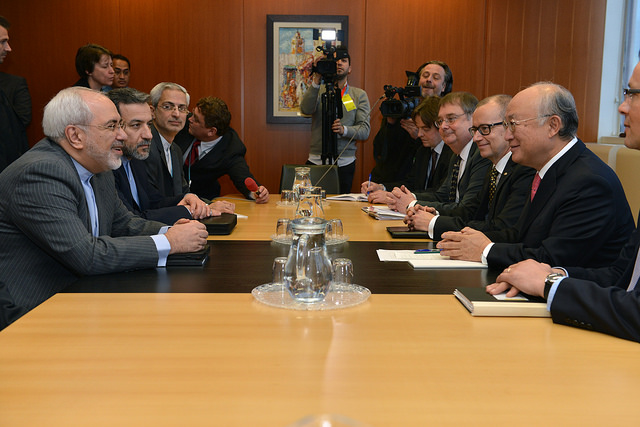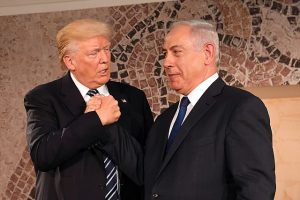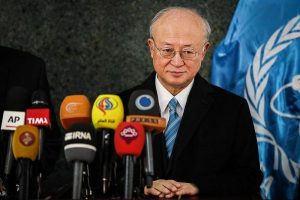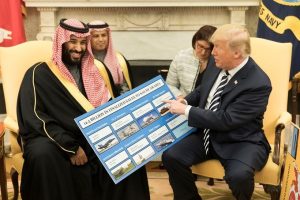by François Nicoullaud
The risk of failure in the ongoing negotiations with Iran over its nuclear program has increased after the most recent meetings in Oman and Vienna. The resolution of the key remaining points of contention—about Iran’s enrichment capacity and, even more problematic, the timetable for lifting sanctions—calls for daring political decisions from both negotiating teams that run counter to the positions of their respective establishments. Moreover, the new majority in the US Congress can at any time adopt additional sanctions that would trigger the collapse of the discussions.
As the prospect for a comprehensive agreement has become more elusive, a lesser compromise has emerged, based on revolving extensions of the present provisional agreement. After all, the Joint Plan of Action adopted on November 24, 2013 offers the United States and its partners inside the P5+1 (the permanent members of the Security Council plus Germany) effective control over Iran’s nuclear ambitions in exchange for a modest alleviation of sanctions. As long as its uranium enrichment activity remains capped at the low rate of 5% and the completion of the Arak reactor is indefinitely postponed, Iran’s two paths to the bomb—through the production of either highly enriched uranium or weapons-grade plutonium—are blocked for good.
Tor Tehran, however, such a deal would mean freezing the development of its nuclear capacities while reducing any hopes of regaining its freedom to make decisions within the framework of a clear and permanent set of rules. Iran will not likely wait passively until the United States makes a series of critical choices: between extending again, or not, the present provisional agreement; inking, or not, a comprehensive and long-term agreement; imposing, or not, new sanctions on Iran; and conducting a military strike, or not, on Iranian nuclear facilities.
Despite the dramatic drop in oil prices and the potential of new sanctions, Iran is not cornered, as its P5+1 interlocutors would prefer to imagine. Tehran can still turn the tables. For instance, Iran could announce its intention to withdraw from the Nuclear Non-Proliferation Treaty (NPT).
As a treaty signatory, Iran is well within its rights. Article X of the Treaty reads: “Each Party shall … have the right to withdraw from the Treaty if it decides that extraordinary events, related to the subject matter of this Treaty, have jeopardized the supreme interests of its country.” Iran could argue that the almost complete blockade imposed on its economy and its population in the name of a supposed “threat to peace” has jeopardized its supreme interests. And of course, new US sanctions would only make things worse. That signatory countries possessing nuclear arsenals are imposing discriminatory measures against a signatory country without nuclear weapons violates the spirit and letter of the NPT.
Iran admitted to and corrected most of the past infractions of its safeguards agreement with the International Atomic Energy Agency (IAEA). Despite thousands of hours of research, numerous IAEA inspectors have also failed to find any “smoking gun” pointing to the manufacture of a nuclear explosive device and the preparation of a nuclear test. Iran could also argue that the P5+1’s focus on the famous “breakout time” makes it clear that the country is still behind the starting line of any race to the bomb. As a result, Iran could conclude that the Security Council had no right to impose the type of sanctions that Chapter VII of the UN Charter permits in response to a “threat to peace”—and that the unilateral sanctions imposed by some of the UN’s most prominent members are even less justifiable.
To present itself as a responsible player, Iran should clearly state that its withdrawal from the NPT would have no influence on the validity of its safeguards agreement with the IAEA and its overall commitment not to build or acquire a nuclear weapon. In accordance with the provisions of this agreement, any Iranian nuclear material placed today under IAEA safeguards would remain subject to exactly the same controls and inspections. All new facilities, such as the nuclear reactors that Russia has agreed to build in Bushehr, would also fall under the same IAEA safeguards.
To alleviate any suspicions, Iran should declare upon withdrawing from the NPT that it would continue to abide on a voluntary basis to the treaty’s provisions by keeping all its nuclear material and facilities, present and future, under IAEA safeguards. Such a move is not unprecedented. France, which joined the NPT only in 1992, issued a statement at the UN in 1968 explaining its reasons for not signing the treaty and its intention, for the sake of non-proliferation, to behave nevertheless like a signatory. At the same time, Iran would make clear that any plan to attack Iranian nuclear facilities placed under IAEA safeguards would jeopardize these commitments. Finally, were Iran to withdraw from the NPT, it should announce its intention to rejoin the treaty as soon as the UN and unilateral sanctions related to its nuclear activities were rescinded.
It is important to avoid any precedent that could undermine the coherence and effectiveness of the NPT. Thus, the risk of Iran’s withdrawal should force the P5+1 to face up to their responsibilities as the main guardians of the treaty. Such a threat could also have a sobering effect on the US Congress and hasten the conclusion of the comprehensive agreement under discussion with Iran.






Don, while I agree with some of your points, I certainly don’t agree that Iran is a model for a multi-polar world. To be sure, its horrendous leadership is in large part so indefensible that it has allowed the West justify its illegal and immoral suffering it has levied on the citizens of Iran. And I don’t see any kind of theocracy being able to play a legitimate or effective role in a true multi-polar world. I agree with you that part of the reason Iran has not exited the NPT is to maintain some legitimacy with NAM and BRICS and to keep them on their side. I agree that they have not caved in to the edicts of the Western imperialism to follow orders obediently or else. But I question how much they have withstood the financial onslaught. If by withstanding we mean they have not collapsed, yes. But they have certainly paid a hefty and dear price for not caving in to the Western demands of playing a subservient role and reaping some benefits. The one thing that they have proved, along with Cuba, is that sanctions do not work if the goal is to remove the leadership. Cuba took an absolute punishment for over 50 years and still has the same leader. Sanctions work great if the goal is to criminally and savagely punish a nation and deprive them of prosperity and all that we in the West hold dear. If Iran is anything like Cuba, while they may have their pride that they did not cave in, their economy is in shambles, their infrastructure is crumbling, their cars are old and dilapidated, their employment is a disaster, the population is underutilized and operates way below its potential and several generations have wasted away. I doubt the picture is exactly the same as in Cuba but you catch my drift. Sanctions don’t remove regimes. They remove prosperity from the population. In between our leadership and theirs, the populations of “rogue nations” (as we unilaterally designate them to be) are the ones who pay the main price for the belligerence of the ruling class.
As I mentioned Iran has made MORE concessions than the west (didn’t say significant concessions). Iran has downgraded almost the entire stock of their 20%enriched-U and in return they’ve received their own money Held hostage illegally in western banks. The other point I’d like to make is that Iran can not be compared to Cuba and NK. Simply because Iran is a very vast country enriched in natural resources (other than oil) as opposed to NK and Cuba (which only has a fairly decent medical industry and tobacco industry) that are intrinsically poor nations.
However, I agree that the Islamic form of government has had its own problems. One can only imagine as they reconstructed and reform the institutions that had been established during the Pahlavi’s dynasty following the revolution 35 years ago. Khomeini and the people around him (mostly mullahs) came to power with an ideology but didn’t know deadly about governing a nation with a population of nearly 40 million people. As result, they have commited many mistakes and ruled with an iron grip in order to survive internally. But the one thing they have learned was how to make decisions collectively (mostly by designated and trusted groups and not by the general population) about their domestic and international challenges. Of course thanks to president Reagan and D. Rumsfeld for encouraging Sadam Hossien to attack the newly formed and weak government of Iran following the release of American hostages in 1980. The economic sanction along with a war for 8 years taught the entire nation of Iran good lessons. The Iranians became hardened in their own ways and lean not to rely or trust anyone around the world. From ending of the Iran/Iraq war in 1988, Sadam getting tricked by the west to invade Kuwait, and Russians invasion of Afghanistan taught the iranian a good lesson regarding their foreign policy. The Iranian motto became “no west no east”. Then following the Russians exit from Afghanistan, Sadam being driven out of Kuwait and the disastrous 9/11, Iranian realized the strategic challenge to them. The west was encircling Iran militarily from Iraq, Turkey, the southern x-states of the old Russia to Afghanistan and to the Persian Gulf. The Iranian quickly went to work and into the defensive modus of operandi! One part of their defense strategy has been to encircle Isreal by funding and supporting Hamas, Hezbollah in Lebenan and Syria. This policy which has lasted until today has become the point of contentions for the west against Iranian government. The Iranians have converted some of the old enemies like, Iraq, Afghanistan, Tajikestan to having friendly relationship and they continue to work on others like Turkey, Armanistan and others. Along the way though they have created more adversarial relationship with Saudi, Qatar and other small sheikdoms in the Persian Gulf. My reason for this long winded note was that Iranians can manage their situations politically and geographically in the future even if the illigal sanctions are continued to be imposed. So for them to withdraw from NPT is not an issue and I’m certain that the Iranians are working on plan C&D or (E&F may be) just in case they do get in a bind with the current negotiations!
Lastly, it is unfortunate that the western governments have made the reconciliation with Iran so difficult for themselves and pushing Iran more and more towards the eastern block instead of bringing it back to the western satellite. Iran can be a reliable, powerful, and efficient partner of the west in the Troubled region of ME without being a subservient.